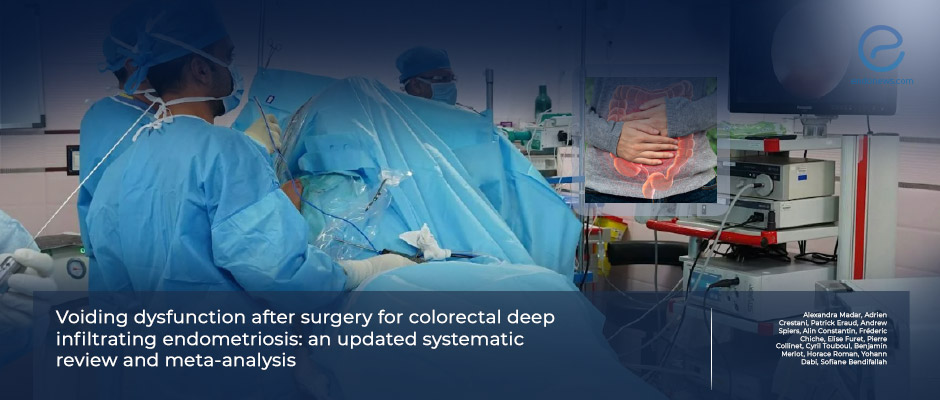Conservative Bowel Surgery Should Be Prioritized in Endometriosis When Clinically Feasible
Apr 3, 2025
Conservative Bowel Surgery Reduces Risk of Post-Operative Voiding Dysfunction in Endometriosis Patients
Key Points
Highlights:
- Conservative bowel surgery is associated with significantly lower rates of post-operative voiding dysfunction compared to radical bowel surgery in patients with endometriosis.
Importance:
- Conservative surgical techniques, such as rectal shaving or discoid excision, should be prioritized when clinically feasible to preserve bladder function and improve recovery.
What’s done here:
- A systematic review and meta-analysis were conducted to evaluate the risk of voiding dysfunction following various surgical techniques for colorectal deep endometriosis.
Key results:
- Rectal shaving was associated with less voiding dysfunction compared to segmental resection.
- There was no significant difference in voiding dysfunction rates between rectal shaving and discoid excision, or between discoid excision and segmental resection.
- Rectal shaving and discoid excision were associated with less persistent voiding dysfunction than segmental resection.
Lay Summary
A recent study published in Updates in Surgery shows that conservative bowel surgery is associated with lower rates of post-operative voiding dysfunction in patients with endometriosis.
Based on these findings, conservative approaches such as rectal shaving and discoid excision should be considered the preferred surgical option when clinically appropriate.
To identify the procedures most associated with this complication, a team led by Dr. Sofiane Bendifallah from the American Hospital of Paris conducted a systematic review and meta-analysis of 22 studies published up to December 26, 2022. The primary outcome was post-operative voiding dysfunction, and the secondary outcome was persistent dysfunction at one month.
The results showed that rectal shaving was associated with significantly lower rates of voiding dysfunction compared to segmental resection.
There was no significant difference between rectal shaving and discoid excision, or between discoid excision and segmental resection.
Both shaving and discoid excision were linked to lower rates of persistent voiding dysfunction compared to segmental resection.
These findings support the use of less radical, nerve-sparing bowel procedures to reduce the risk of post-operative bladder complications and improve patient outcomes following colorectal surgery for deep endometriosis.
Research Source: https://pubmed.ncbi.nlm.nih.gov/39920437/
voiding dysfunction surgery rectal shaving discoid excision segmental resection conservative bowel surgery radical bowel surgery

